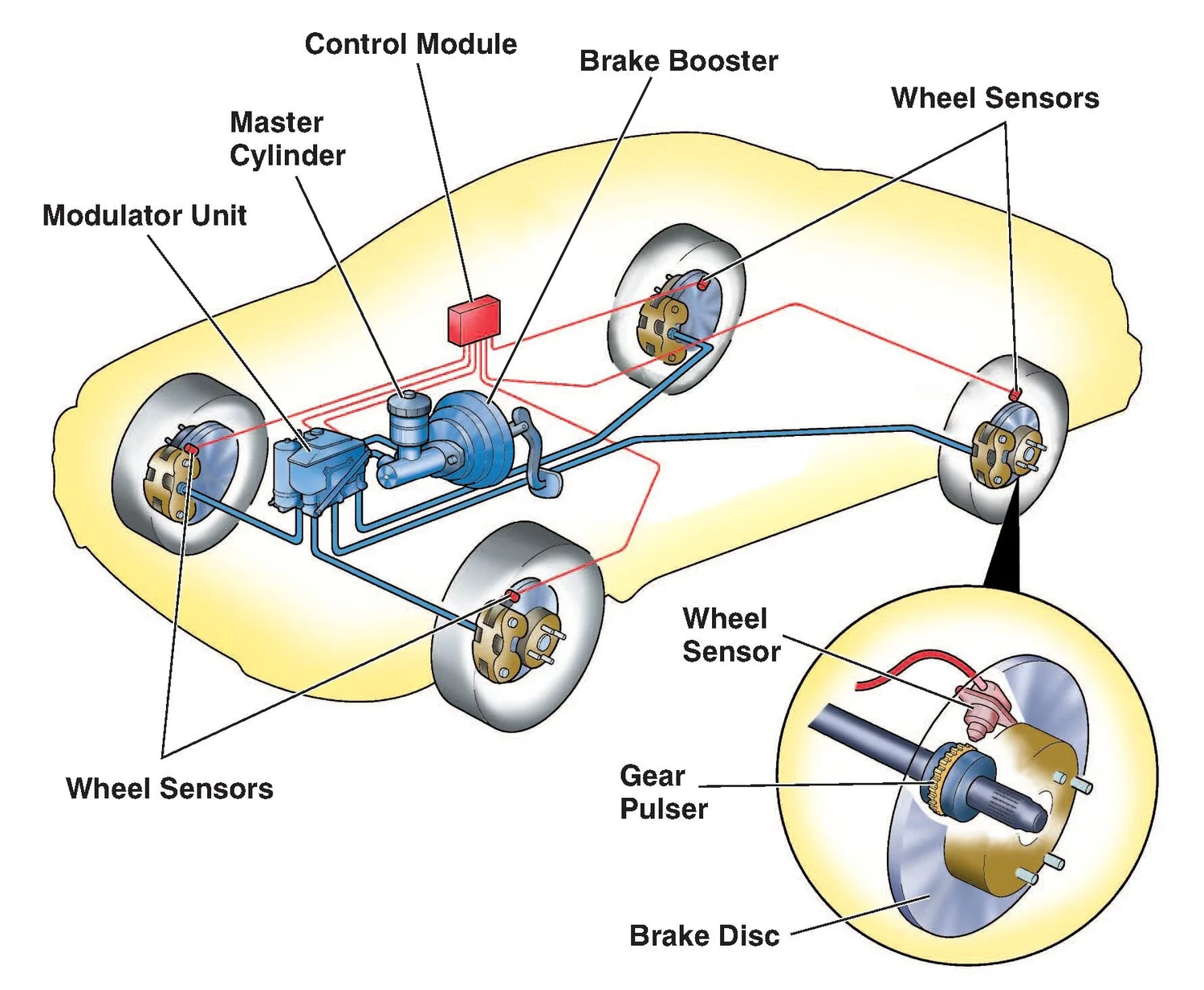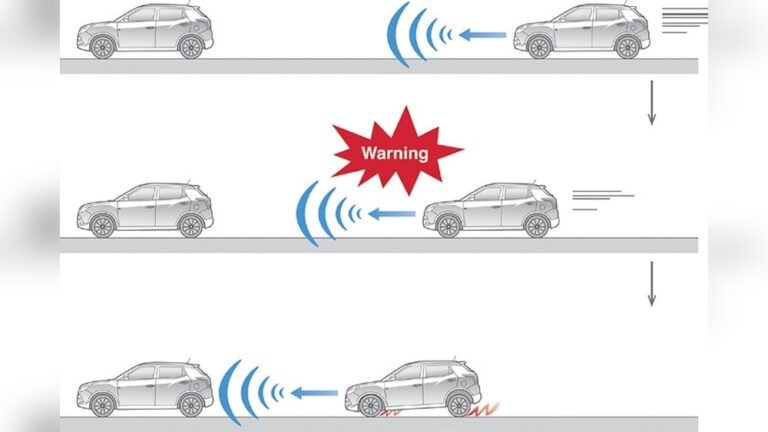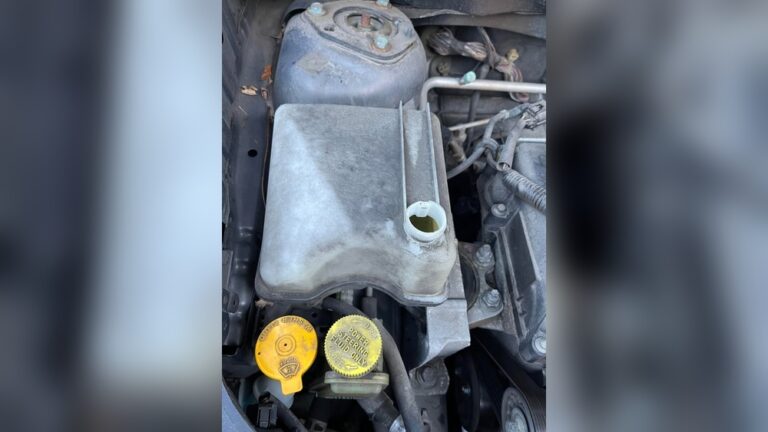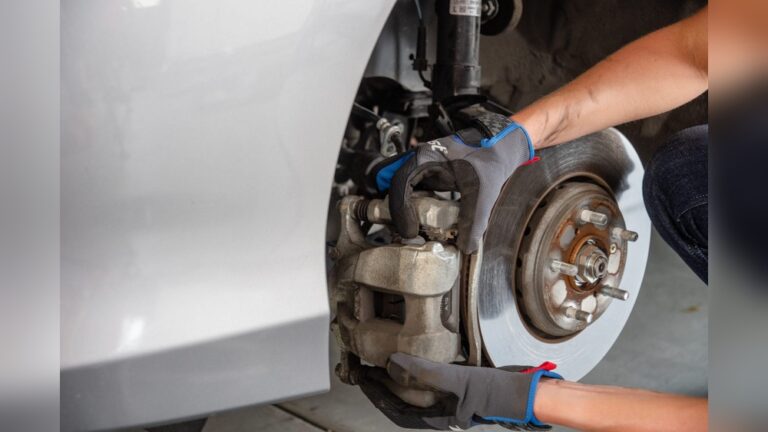Have you ever wondered if every car on the road has ABS brakes? You might think that all vehicles come with this safety feature, but the truth could surprise you.
Understanding whether your car has ABS can make a big difference in how you drive and stay safe, especially in tricky situations. You’ll discover what ABS brakes are, why they matter, and which cars actually have them. Keep reading to find out how this simple knowledge can protect you and your loved ones every time you hit the road.
What Is Abs Braking System
The ABS braking system is a safety feature in many cars. ABS stands for Anti-lock Braking System. It helps prevent the wheels from locking during sudden stops. This keeps the driver in control and reduces skidding on slippery roads.
ABS works by quickly pulsing the brakes when it senses wheel lock. This allows the wheels to keep turning and maintain traction. The system uses sensors on each wheel to monitor speed and braking force.
How Does Abs Work?
When a driver brakes hard, ABS senses if a wheel is about to stop rotating. The system reduces brake pressure on that wheel. It then reapplies pressure quickly to prevent lock-up. This pulsing happens many times per second.
The rapid pulsing keeps the tires rolling and helps the driver steer. This can avoid accidents caused by loss of control during emergency braking.
Why Is Abs Important?
ABS improves vehicle safety by keeping wheels from locking. Locked wheels can cause a car to skid and slide uncontrollably. ABS helps maintain steering ability even during hard braking.
This system is especially useful on wet or icy roads. It reduces the chance of collisions and improves stopping distance in many cases.
Components Of Abs
ABS includes sensors, a control module, and a hydraulic unit. Sensors monitor the speed of each wheel. The control module processes sensor data to manage braking force. The hydraulic unit adjusts brake pressure to each wheel.
These parts work together to keep braking smooth and safe. Proper maintenance ensures ABS works correctly when needed.

Credit: en.wikipedia.org
How Abs Works
Anti-lock Braking System (ABS) helps drivers keep control during hard braking. It stops the wheels from locking and skidding on slippery roads. This system works fast and smart to improve safety.
ABS uses sensors and a computer to monitor wheel speed. It adjusts brake pressure to keep the wheels turning. This process helps the driver steer while braking hard.
How Sensors Detect Wheel Speed
Each wheel has a sensor that measures its speed. The sensors send data to the ABS control unit. If a wheel slows too fast, the system knows it may lock.
How Abs Adjusts Brake Pressure
The ABS control unit changes the pressure on the brakes. It lowers pressure to stop the wheel from locking. Then it raises pressure again to keep the car slowing down.
The Role Of The Abs Pump And Valves
The ABS pump and valves control brake fluid pressure. Valves reduce pressure when a wheel is about to lock. The pump restores pressure quickly to keep braking effective.
How Drivers Feel Abs In Action
Drivers may feel a pulsing in the brake pedal. This pulsing means ABS is working to control the brakes. It helps keep the car steady and easier to steer.
Cars With Abs Brakes
Anti-lock Braking System (ABS) helps prevent wheels from locking during hard braking. It improves vehicle control and reduces stopping distances on slippery roads. Many cars today come equipped with ABS brakes as a safety feature.
Knowing which cars have ABS can help you make better buying decisions. This section covers both new cars and older models with ABS brakes.
Standard Features In New Cars
Most new cars include ABS as a standard safety feature. It is often part of a package with other safety systems like traction control. Manufacturers add ABS to meet safety regulations in many countries. Buyers can expect ABS on sedans, SUVs, and even small cars. This feature enhances safety without adding extra cost.
Abs In Older Models
ABS was optional on many older cars before becoming standard. Some models from the 1990s and early 2000s may or may not have ABS. It depends on the car’s trim level and price range. Checking a car’s manual or asking the seller can confirm ABS presence. Older cars without ABS require more careful braking on wet or icy roads.

Credit: www.driveincontrol.org
Benefits Of Abs Brakes
ABS brakes bring important benefits to drivers. They improve how a car stops and helps avoid accidents. These brakes work by stopping the wheels from locking during hard braking. This makes driving safer and more controlled.
Improved Safety
ABS helps keep the car stable during sudden stops. It stops the wheels from locking, so the driver can steer. This prevents skidding and reduces the chance of crashing. ABS also shortens stopping distances on slippery roads. It makes driving safer in rain, snow, or ice.
Enhanced Control
With ABS, the driver stays in control while braking hard. The system quickly pumps the brakes to keep traction. This helps the driver steer around obstacles. It prevents the car from sliding or spinning out. ABS gives more confidence in emergency situations.
Cars Without Abs
Not all cars come with ABS brakes. Many older models and some budget cars still lack this feature. Understanding why some cars do not have ABS helps in making safer choices. It also explains the risks involved in driving without this system.
Reasons For Abs Absence
ABS technology adds cost to the vehicle. Some manufacturers skip ABS to keep prices low. Older cars were made before ABS became common. Certain basic or economy models may also lack ABS. In some countries, safety laws do not require ABS. This leads to more cars without this system on the road.
Risks Of No Abs
Cars without ABS can skid during hard braking. Skidding can cause loss of control and accidents. ABS helps keep steering control while braking. Without ABS, stopping distance can be longer on slippery roads. Drivers may struggle to avoid obstacles safely. Lack of ABS increases the chance of crashes in emergencies.
Legal Requirements For Abs
Anti-lock Braking System (ABS) is important for vehicle safety. It helps prevent wheels from locking during hard braking. This system improves control and reduces stopping distance on slippery roads.
Many countries have rules about ABS on cars. These rules help keep drivers safer on the road. Understanding legal requirements helps buyers know what to expect in new cars.
United States Abs Laws
The U.S. requires ABS on most new cars since 2013. The National Highway Traffic Safety Administration enforces this rule. It applies to passenger cars and light trucks. The goal is to lower crash risks and injuries.
European Union Abs Regulations
The European Union mandates ABS on all new cars since 2004. This includes passenger vehicles and commercial trucks. The rule follows UNECE standards for vehicle safety. It helps protect drivers across member countries.
Abs Requirements In Asia
Many Asian countries now require ABS on new cars. Japan, South Korea, and India have set specific rules. These laws focus on improving road safety and reducing accidents. Some countries phase in these rules over several years.
Exceptions And Special Cases
Some vehicles may not need ABS by law. Classic cars and certain off-road vehicles are often exempt. Small motorcycles usually have different safety standards. Always check local laws for exact requirements.
How To Check If Your Car Has Abs
Knowing if your car has ABS brakes is important for safety. ABS stands for Anti-lock Braking System. It stops your wheels from locking during hard braking. This helps you keep control of the car. Here are simple ways to check if your car has ABS.
Look For The Abs Light On The Dashboard
Turn on your car’s ignition without starting the engine. Watch the dashboard lights carefully. If your car has ABS, a light with the letters “ABS” will appear. It usually turns off after a few seconds. If the light stays on, the ABS might need repair.
Check The Owner’s Manual
Find your car’s owner’s manual. This book has all the details about your vehicle’s features. Search for sections about brakes or safety systems. If ABS is included, it will be clearly mentioned. The manual may also explain how the system works.
Inspect The Brake System Components
Open the car’s hood and find the brake master cylinder. Look for a wheel speed sensor near each wheel hub. These sensors are part of the ABS system. If you see wires connected to the brake parts, ABS is likely present. Be careful when checking under the hood.
Ask A Mechanic Or Use An Obd-ii Scanner
Visit a trusted mechanic for a quick check. They can tell you if ABS is installed on your car. Another way is to use an OBD-II scanner. This device reads your car’s computer. It shows error codes related to ABS if the system exists.
.png)
Credit: webrakes.com
Future Of Braking Systems
The future of braking systems holds exciting changes. Cars will stop safer and smarter. New technology will improve control and reduce accidents. Braking will become more efficient and adaptive. This will help drivers in many road conditions. Safety is the main focus for these advances.
Advancements Beyond Abs
ABS has been standard for years. Still, engineers develop new features beyond it. Electronic brakeforce distribution adjusts power for each wheel. Emergency brake assist helps stop faster in danger. Regenerative braking recovers energy in electric cars. These features make braking smoother and safer. Future systems will use sensors to predict risks. This means brakes will work before drivers react.
Integration With Autonomous Vehicles
Self-driving cars need smart braking systems. They rely on computers to control speed and stops. Brakes will link with cameras and radar. This allows cars to stop automatically for obstacles. Smooth braking improves passenger comfort and safety. Autonomous cars will brake more precisely than humans. This reduces crashes and traffic jams. Braking systems will become key parts of driverless technology.
Frequently Asked Questions
Do All Modern Cars Have Abs Brakes?
Most modern cars come equipped with ABS brakes as a standard safety feature. ABS helps prevent wheel lockup during sudden braking. However, some older or budget models may lack ABS. Always check your car’s specifications to confirm if ABS is included.
What Is The Main Benefit Of Abs Brakes?
ABS brakes improve vehicle control during emergency stops. They prevent the wheels from locking, reducing skidding risks. This helps maintain steering ability and shortens stopping distances on slippery roads, enhancing overall safety for drivers and passengers.
Are Abs Brakes Mandatory In All Vehicles?
In many countries, ABS brakes are mandatory for new vehicles, especially passenger cars. Regulations vary by region, but safety standards increasingly require ABS. Check local laws to understand ABS requirements for your vehicle type and model year.
Can Abs Brakes Fail Or Malfunction?
Yes, ABS brakes can malfunction due to sensor or hydraulic issues. Warning lights on the dashboard typically indicate ABS problems. Regular maintenance and prompt repairs ensure ABS functions correctly for optimal safety.
Conclusion
Not all cars come with ABS brakes as a standard feature. Many modern vehicles include ABS to help prevent wheel lock during sudden stops. Older or basic models might lack this safety system. Knowing whether your car has ABS helps you drive safer.
Always check your car’s manual or ask a dealer for details. Safe driving depends on understanding your vehicle’s features well. Remember, ABS improves control but does not replace careful driving. Stay aware, stay safe on the road.



